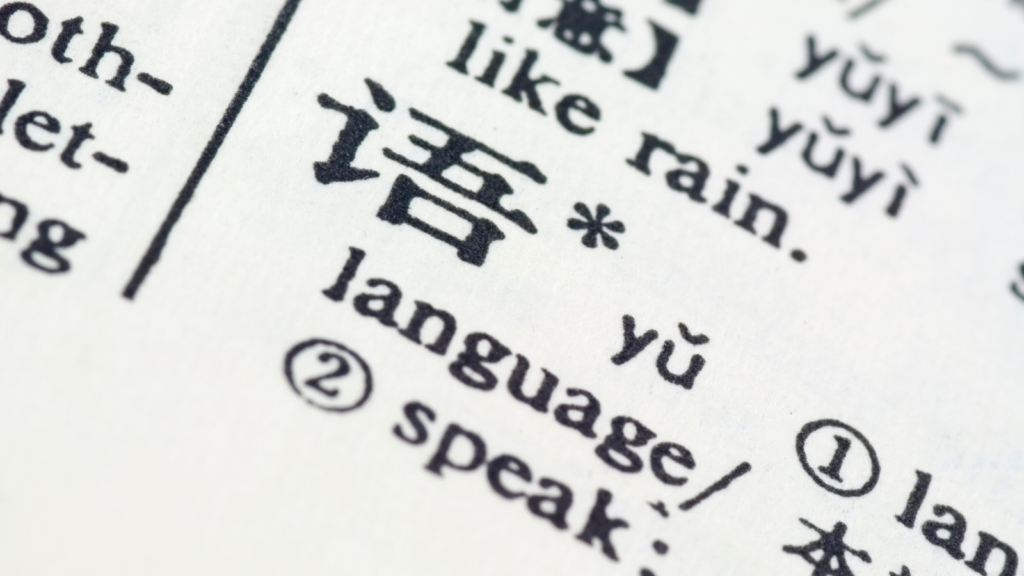Is Mandarin a hard language to learn? Tips to make the process easier

Photo courtesy of Adobe Stock
Opinions expressed by Digital Journal contributors are their own.
Ever imagined what it would be like to understand your favorite Chinese dramas without subtitles? Maybe you’ve gotten hooked on the latest Chinese makeup trends and would like to know a specific product name. These might be signs that you should start learning Mandarin.
The lingering question in your head now might be, ‘Is Mandarin a hard language to learn?’ The short answer is yes, as the language presents challenges. But don’t feel discouraged. It’s nothing you can’t achieve with effort and tons of practice.
Read on for some tips to help make learning Mandarin Chinese much easier.
What makes Mandarin so difficult?
Mandarin, like most languages, is tough to pick up at first. That’s why enrolling in classes offered by schools like Yi Mandarin Language Learning can be a great option for any beginner. Teachers can help you learn at your own pace and clarify the things that you can’t understand.
There are three main reasons why Mandarin is a little harder to learn than, say, Spanish or French:
Tonal pronunciation system
Tones also exist in English to denote if the speaker is asking a question. In a tonal language like Mandarin Chinese, however, different tones are used in most words, and a change in pitch changes the meaning.
One typical example Mandarin language schools use is the syllable’ ma.’ Depending on the pitch or tone you use, ‘ma’ can either mean ‘mom’ or ‘horse.’ So, getting those tones correct is often the first lesson new Mandarin speakers learn.
Character-based writing system
Another thing that might drive you away from the language is its writing system. Unlike the English alphabet, which was derived from Latin, Mandarin uses more than 20,000 characters. Yes, it’s a lot to memorize, but Mandarin language schools only focus on what’s commonly used and provide helpful activities to help you break down each one.
Grammar differences from English
As you continue learning Chinese phrases and sentences, you’ll notice how Mandarin has a different grammatical structure compared to English. Verb conjugation, such as when ‘go’ turns to ‘went,’ also doesn’t exist in this language. It can get confusing at first, but you’ll get the hang of it soon.

Making Mandarin easier to learn
So, is Mandarin a hard language to learn? Yes, but not so much if you apply these tips in your formal lessons:
Tips for toning
Thankfully, Mandarin only uses four distinct tones, unlike other Chinese dialects and Cantonese, which could have six to nine tones. Part of your lessons will include pronunciation of these four tones, and you can supplement them by doing the following:
- Hear the difference: Listen to recordings and practice distinguishing them. Imagine tones as musical notes — a flat tone is like a monotone hum, while a rising tone goes up like a question.
- Speak up and practice: Shadow native speakers or converse with a friend fluent in Mandarin to guide you. You can also listen to audio lessons and mimic their tones. Don’t be afraid to sound silly — practice makes perfect (and less embarrassing down the line).
- Tech tools to the rescue: Many apps and online resources are dedicated to tone training. Use them to your advantage.
If the tones are starting to ‘sound’ the same, don’t hesitate to seek help from your language teacher. They’ll clear up the confusion.
Tips for characters
Speaking might become easier in time, but writing is another challenge you must face. Fortunately, you’re not expected to memorize those 20,000 or more characters in the first go. But you can start with the basics using these strategies:
- Mnemonic magic: Use memory tricks or games to associate characters with pictures or stories. For example, the character for ‘mountain’ looks like three peaks stacked together.
- Radical revolution: Characters are built from smaller components called radicals. Learn these radicals first, as they’ll unlock tons of characters.
- Spaced repetition: Apps with this learning strategy are your new best friends. They use spaced repetition algorithms to optimize memorization, so you’ll remember those characters after a quick cram session.
Find one method that works for you, or use them all together for variety in your learning experience. Remember to include the pinyin, too, to help you practice reading the characters faster.
Tips for grammar
The different grammar rules make Mandarin one of the hardest languages; but relax. These tips can help you say Chinese sentences without getting too tongue-tied:
- Focus on the differences: Don’t waste time memorizing verb conjugations. Instead, concentrate on sentence structure, which flips the subject-verb-object order of the English language.
- Clear explanations: Find beginner-friendly grammar resources that explain concepts simply, with lots of examples. Many online courses and textbooks are specifically designed for native English speakers.
Sometimes, it helps not to overthink. So, participate in lessons and engage in consistent practice to make forming sentences second nature to you.
Staying motivated
Motivation is one of the things that could lead you to success—in this case, Mandarin Chinese fluency. Here’s how to stay motivated:
- Set achievable goals: Don’t aim to become fluent overnight. Set small, achievable goals, like learning five new characters a week. And celebrate your milestones, too.
- Find your tribe: Join a language exchange group or online community. Connecting with other Chinese learners will boost your motivation and provide a support system.
Remember to make it fun. Watch Chinese movies with subtitles, listen to Mandarin music, or find a language-learning app with games. The more you enjoy the process, the easier it will be to stick with it.
Wrapping up
Is Mandarin a hard language to learn? After reading this blog, your answer should be a resounding ‘no.’ With determination and help from competent Chinese language teachers, you’ll turn from novice to conversational speaker.
Who knows? You could be fluent enough to boost your job prospects or travel opportunities. Even if you don’t, you’ll still gain cultural understanding, which is crucial to have in this world.
Is Mandarin a hard language to learn? Tips to make the process easier
#Mandarin #hard #language #learn #Tips #process #easier





